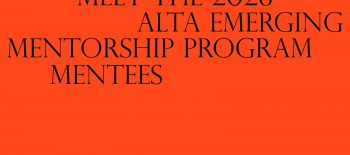Polish candidate for the Oscars 2022
Directed by Jan P. Matuszyński
Poland, France, Czech Rep | ca. 160 min. | 2021 | political thriller | Polish
Poland, 1983. The country is shaken by the case of Grzegorz Przemyk – a high school student beaten to death by militia. Based on true events, the film follows the story of Jurek – the only witness of the beating, who overnight became the number one enemy of the state. The oppressive regime used its whole apparatus – the secret service, militia, the media and the courts – to squeeze Jurek and other people close to the case, including his parents and Przemyk’s mother, Barbara.
“No background knowledge of these players is needed to savor Leave No Traces; the film never morphs into a history lesson. At its best, it thrums with an incendiary fury that brought me back to Costa-Gavras’s Z, another cry of rage and a fulminating investigation into a country’s shady past… bursts with the fury of an unavenged crime… Matuszyński keeps a point of view above the events, and there’s something admirable in his implacable commitment to leave no stones unturned… the fervor Leave No Traces brims with is universal, its plea for justice ever topical. I’m sure I wasn’t the only one thinking of George Floyd as the end credits rolled.” /Leonardo Goi – MUBI Notebook
Jan P. Matuszyński
Bio source: Culture.pl
A film director born on 23 April 1984 in Katowice. He is a laureate of Golden Lions for directing ‘The Last Family’.
In 2010, he completed the documentary course at Andrzej Wajda Master School of Film Directing, while two years later defended a diploma at the directing faculty at Katowice Film School.
The director was spotted along with his first short film Razem (Together) with Olga Bołądź and Redbad Klynstra (2006) which was screened at the Film and Artistic Festival ‘Lato Filmów’ in Toruń. A year older Myjnia (Car Wash) brought him the Jan Machulski Polish Independent Cinema Prize in the best director category and the Grand Prix at the Polish Short Film Festival Short Waves. His further fictional short films – 15 lat milczenia (15 Years of Silence, 2007), about a mime study group, Wiem kto to zrobił (I Know Who Did It, 2008) and the psychological drama Afterparty (2009) – only proved versatile style and great workshop of the young director. Offline (2012), which was created within the framework of the ’30min’ program, explored the contemporarily important theme of online dating and false identities in the Internet.
An interesting theme was brought up by Matuszyński in his first tv documentary – the protagonists of Amisze znad Wisły (Amishes from Above Vistula, 2010) is an American pair which belonging to the titular Christian congregation, decided to come to Poland a dozen or so years ago. Niebo (Heaven, 2011) was realised within the framework of the First Documentary program; it tells a story of a critically ill man who finds sense in his life in writing icons. Great passion which can overshadow every physical weakness came back as a subject of Deep Love (2013) which was awarded at the Kraków Film Festival and the MFF in Moscow. The film talks about a 50-year-old diver who looses his fitness in effect of a stroke. The paralysed man dreams of coming back into water, his girlfriend helps him to recover and contact the world.
Matuszyński’s next professional step was largely motivated by his family situation. As he said in an interview for Onet:
About three years ago, shortly after the premiere of my first film entitled Deep Love, my son was born. With my wife being pregnant, I thought about creating a film about family relations. The Beksiński family answered my needs – Robert Bolesto’s script got into my hands at the right time.
In recent years, Poland’s cinema screens have been hit with a plethora of adaptations of contemporary Polish novels, non-fiction and more. By now, new takes on the latest in its literature rule the country’s film and television world – and still more are on the way. What drives Polish filmmakers to the present-day page for inspiration?
The choice of the script came out to be a great success. The Last Family is among the most important Polish films of 2016. The film launched its path of glory in Locarno where Andrzej Seweryn received a Prize for Best Performance. In following months, the film triumphed in Chicago, Kiev and Gdynia where Matuszyński received the Grand Prix, Audience Award and Journalists Award.
Filmography:
- 2006 – Razem (Together, short film at school)
- 2007 – Myjnia (Car Wash, short film at school), 15 lat milczenia (15 Years of Silence, short film at school)
- 2008 – Wiem, kto to zrobił (I Know Who Did It, short film at school)
- 2009 – Afterparty (short film at school)
- 2010 – Amisze znad Wisły (Amishes from Above Vistula, documentary)
- 2011 – Niebo (Heaven, documentary)
- 2012 – Offline (short fiction film)
- 2013 – Deep Love (documentary)
- 2016 – Ostatnia rodzina (The Last Family, fiction)
- 2020 – Król (TV series, based on The King of Warsaw by Szczepan Twardoch)
- 2020 – At Home (segment)
- 2021 – Leave No Traces (fiction)



